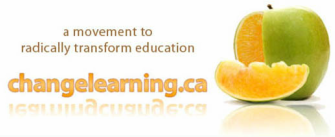(Source: Canadian Council on Learning)
Link:
https://www.childcarecanada.org/documents/research-policy-practice/17/11/let-children-play-natures-answer-early-learning

|
|
|
Play enhances every aspect of children’s development and learning, however, it is increasingly rare for children to have long, uninterrupted blocks of time to play indoors and outdoors, by themselves or with their friends. Although children learn to play naturally, we all have a role in ensuring that children have enough time and opportunity to play.
(Source: Canadian Council on Learning) Link: https://www.childcarecanada.org/documents/research-policy-practice/17/11/let-children-play-natures-answer-early-learning
2 Comments
The centre:
The Saturna Ecological Education Centre (SEEC) is an experiential, place-based ecological learning centre on beautiful Saturna Island, British Columbia. Our programs: We provide Southern Gulf Islands students with elementary Eco-Adventures and high school Environmental Studies programs. Curriculum Connections: Our programs connect to the BC education curriculum, while encouraging learners to go deeper, immersing themselves in the natural world to feel, understand and act for the environment. Our explorations integrate science, social studies, physical education, language arts and fine arts to create unique learning adventures that promote critical thinking, social responsibility and personal growth. While our initial focus is on the students of our own School District #64 community, we are carefully planning and working towards offering our programs to learners of all ages from everywhere else! Please let us know if you’d like to join us! Read more Community Forest International’s education program unites schools from New Brunswick, Canada with schools in Pemba, Tanzania creating a cross-cultural, environmental learning experience. Students participating in this innovative learning partnership will address climate change by measuring their school’s Greenhouse Gas Emissions and off-setting their environmental impact by planting trees.
Read more Roots of Empathy (ROE) is an award winning, evidence-based classroom program that has shown dramatic effect in reducing levels of aggression and violence among school children while raising social/emotional competence and increasing empathy. The program reaches children from Kindergarten to Grade 8 across Canada, in English and French, in rural, urban, remote and Aboriginal communities both on and off reserve and internationally in Australia,New Zealand, and the United States.
Read more A village primary school has brought a new sense of pride to a former mining community devastated by a pit closure. The 107-pupil Cassop Primary School in Durham has become the first in the UK to be wind-powered through a wind turbine located in the school grounds. It also became the first to win an award for the country’s greenest school as part of the prestigious National Teaching Awards – screened live on BBC2.
Read more In this article, grade four teacher Diane Petersen writes:
Ian’s work as a scientist began with a contradiction: “The scientists said that you can’t find any horny toads here. And I said, ‘My dad and I go out and catch them.’” The thirteen-year-old has now traveled to Idaho and California, where he and three classmates surprised working scientists by describing new discoveries about where the 3-inch-long lizards live and what they eat. Read more Play enhances every aspect of children’s development and learning, however, it is increasingly rare for children to have long, uninterrupted blocks of time to play indoors and outdoors, by themselves or with their friends. Although children learn to play naturally, we all have a role in ensuring that children have enough time and opportunity to play.
(Source: Canadian Council on Learning) Link: http://www.ccl-cca.ca/CCL/Reports/LessonsInLearning/LinL20061010LearninPlay.htm “ While schools and parents elsewhere push young children to read, write and surf the Internet earlier in order to prepare for an increasingly cutthroat global economy, some little Germans are taking a less traveled path — deep into the woods. Germany has about 700 Waldkindergärten, or “forest kindergartens,” in which children spend their days outdoors year-round. Blackboards surrender to the Black Forest. Erasers give way to pine cones. Hall passes aren’t required, but bug repellent is a good idea.”
Read full article (Source: Wall Street Journal) |
Categories
All
Archives
August 2015
|